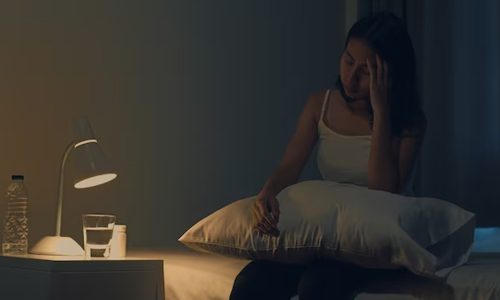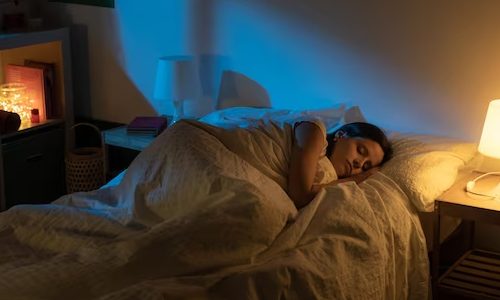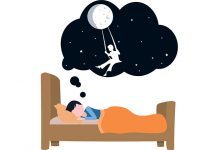Staying awake for long hours at night will cause major side effects. Besides affecting your sleeping rhythm, insomnia leads to mood changes, health disorders, hormonal imbalances, and even increases the risk of multiple health conditions. Moreover, the real trouble starts the next day by fogging your thoughts and making you lazy the whole day. Drinking caffeine may alert your mind often, but won’t help you always. Some people claim lack of sleep creates stomach upset or nausea. Read on to learn more about the causes and effects of nausea.
What Is Nausea?
Nausea is a symptom that indicates changes in the body’s function. It causes an uneasy feeling in the stomach and throat. Nausea could be the sensation of vomiting, which may lead to emptying the stomach by throwing up. Nausea triggers the urge to vomit but it will not always make you vomit. Nausea is not a disorder but an alert about the abnormality in your body. It could be a symptom of various health conditions including:
- Indigestion
- Food Poisoning
- Pregnancy
- Lack of sleep
- Infection
- Migraine
How Sleep Deprivation Leads to Nausea?
Sleep might be considered just a routine thing, but there is a huge science behind it. Similar to machines, humans also need some rest to function properly. The human body needs sleep to stabilize every function. A small crack in this rhythm will weaken the immune system and lead to sickness.
Initially, the abrupt symptoms of sleep deprivation are dizziness, fogging thoughts, and tiredness. If sleeplessness continues further it will take a toll on your immune system, for instance, your body could work for a certain amount of time, and if it exceeds overwork, it will excessively release the pro-inflammatory cytokines. These proteins if secreted more than usual will affect the digestive system.
Many studies based on insomnia state that lack of sleep is linked to stomach and intestinal disorders causing nausea and raising the risk of gastrointestinal disorders.
How Does Sleep Deprivation Impact Your Body?
Sleep deprivation will twist the whole body mechanism causing illness and infection. The human body will become prone to short-term illness as well as long-term illnesses such as diabetes and stroke. Plus, a person who sleeps less than 6 hours may double the risks or contract any illness.
Sleep plays a major role in our mental health. Cortisol is a hormone that your body produces when you don’t sleep well and it will increase stress levels and anxiety. Other side effects include:
- Lightheadedness
- Dizziness
- Nausea
- Constipation
- Diarrhea
- Motion sickness
- Chronic disease
Remedies for Nausea
Nausea is one of the side effects of sleep deprivation, but you must cure the root cause to get rid of the symptoms. Here are some useful tips and home remedies to manage nausea.
Drink Enough Water: You must take at least 8 to 11 glasses of water to stay hydrated.
Don’t Stress Too Much: In some cases, moving and focusing on multiple things may worsen the symptoms. So try to sit and stay quiet.
Avoid Spicy and Fatty Foods: Instead try fresh juice, ginger candies, and soda.
Eat Small Portions of Meals: Avoid eating larger meals when you feel nauseous, instead split the meals into smaller portions.
Avoid Bad Odor: Strong odours worsen the vomiting sensation so try to avoid it.
Get Fresh Air: Open the door and get some fresh air.
Ways to Get a Better Sleep
Fix a particular time to go to bed. Try to finish your dinner two or three hours before going to bed. Repeat the same sleep pattern even on weekends.
Follow a bedtime routine. It may include things such as brushing your teeth, reading, making the bed, or dimming the lights.
Keep the screens at bay. Avoid phones and screens at your bedtime because it will keep your brain alert.
Working out every day may help you fall asleep easily.
Organize your bedroom. Clean up often and make it cozy with soft pillows and mattresses so you can sleep peacefully.
Avoid caffeine, beverages, or a large meal before bedtime to get a good sleep.
When to Visit a Doctor?
You should consult a doctor when you are unable to get sleep even trying many remedies. For your information, it is not only the insomnia that causes nausea but could be the symptoms of some other disorder too. With the help of the physician, you can figure out the health condition and solve it with medications.
What are the Symptoms of Lack of Sleep?
Some of the common symptoms are tiredness, irritability, dizziness, droopy eyes, and frequent yawning. For some people, it may even increase obesity.
How Many Hours Can You Go Without Sleep?
A person can go without sleeping for more than 48 hours, but it will lead to serious health issues.
Are 6 Hours of Sleep Enough?
No, six hours hours sleep is not enough for an adult. As per doctors’ recommendations, a person should sleep at least seven to eight hours.
How do I Permanently Get Rid of Insomnia?
Avoid the things that keep you awake for a long time, for instance, if you binge-watch at night it will trigger you to watch more. You can schedule the binge-watching in the daytime and sleep at night. Additionally, eating healthy foods and getting an adequate amount of sleep will help get rid of insomnia.
In conclusion, what could be a better solution than getting adequate sleep to get rid the insomnia? Sleeping is the best solution for such health concerns.























